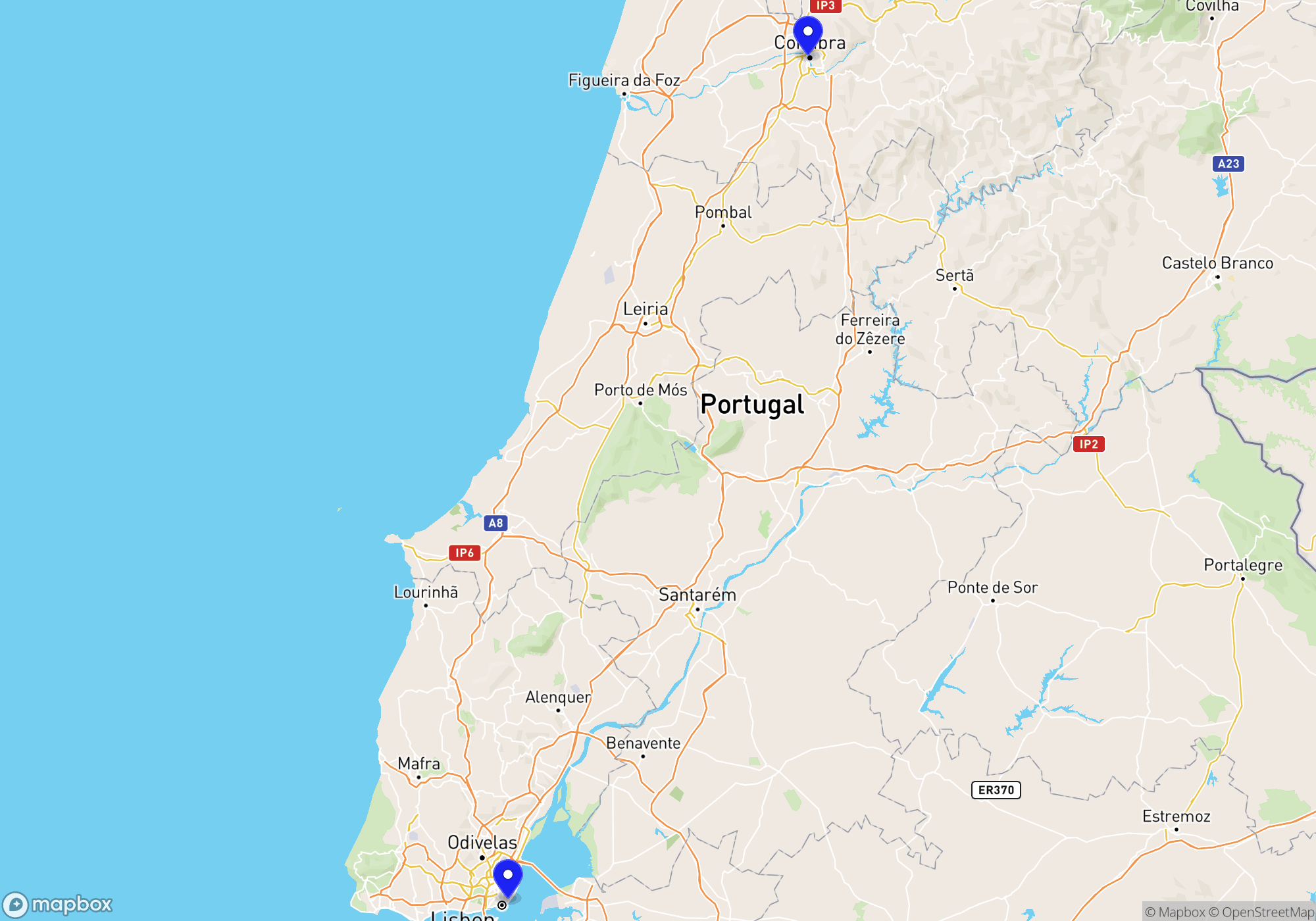
You can buy train tickets directly from the operator or through a reseller. The reseller is typically slightly more expensive (3-5%) but can provide an easier booking experience, especially if you travel with more than one operator.


These operators provide a complete journey either as a direct connection or through their partners. Even if a change of trains is involved, it’s all part of a single itinerary managed by the same train company or its partners, offering a smoother and more coordinated travel experience.

Some operators don’t run direct trains the whole way, but they serve either the departure or arrival station. In many cases, you can combine two of these operators to complete your journey by changing trains along the way. This is often a flexible and budget-friendly way to travel — especially if you’re comfortable piecing together your own itinerary.
Just keep in mind that these are separate journeys, which means a delay on the first leg could cause you to miss the second without automatic compensation or rebooking. It’s a great option for confident travelers who don’t mind a bit of extra planning.

I am sorry, but FlixBus is primarily known as a long-distance bus service rather than a rail operator. If you’d like information on train services between Coimbra and Lisbon, I can provide details on rail operators like Comboios de Portugal (CP), which is the main train service provider in Portugal. Please let me know if you would like information on this or any related train services.
For train travel from Coimbra to Lisbon, the Interrail Global Pass and Interrail One Country Pass are valid only for non-residents of Portugal. If a traveler is a resident of Portugal, the Interrail Passes cannot be used for domestic travel within the country. The Eurail Pass can be used for this route, but it is only valid for travelers who are not residents of the European Union.
Arriving in Lisbon by train, you’ll likely disembark at one of the main stations: Santa Apolónia or Oriente. Both stations are well connected to Lisbon’s comprehensive local transportation network. To get around the city, you can start with the metro, which is efficient and covers a significant part of Lisbon. The metro has four lines: blue, yellow, green, and red, intersecting at key points in the city. If you’re heading downtown, the blue line will take you directly from Santa Apolónia, while Oriente is served by the red line.
Lisbon’s iconic trams are another quintessential way to explore the city, especially routes like the famous Tram 28, which winds through historic neighborhoods such as Alfama and Baixa. Trams and other modes of local public transit can be accessed using the Viva Viagem card, a rechargeable card available at metro stations. Buses complement the network, extending to areas the metro and trams don’t reach. They operate frequently and can take you to many suburbs and surrounding areas.
For more private transport, taxis are readily available across the city, especially at major transit hubs and tourist areas. They are metered, providing a relatively affordable option for getting around quickly. Ridesharing services, like Uber and Bolt, also operate in Lisbon, offering the convenience of app-based rides.
Finally, cycling is becoming more popular in Lisbon with the expansion of dedicated bike lanes and the launch of bicycle-sharing services like Gira, which you can use to pedal around the city, although you should be prepared for some hilly terrain.
Lisbon, Portugal’s vibrant capital, serves as a central hub for train travel, with effective and scenic rail connections both domestically and internationally. Domestically, one of the most popular rail routes is the Alfa Pendular service that connects Lisbon to Porto, Portugal’s second-largest city, in approximately three hours. This high-speed train continues north to cities like Braga, providing a comfortable and efficient way to explore Portugal’s diverse regions. Another significant domestic route is the Intercidades trains, which offer connections from Lisbon to major inland cities such as Coimbra, known for its historic university, and Évora, famed for its well-preserved Roman temple and quaint atmosphere.
Internationally, Lisbon is connected to Madrid, Spain, through an overnight train known as the Trenhotel. This service provides a classic couchette experience, making it a popular option for travelers looking to reach Spain comfortably while saving on accommodation. Although not as frequent as other European night trains, the Trenhotel offers a unique cross-border rail experience that reflects traditional European train travel charm. For travelers wishing to explore further within Spain or connect to the broader European network, Madrid serves as a gateway to other Spanish cities and beyond. While direct international connections from Lisbon are limited compared to other European capitals, its domestic rail network is robust, offering seamless connections across the country and links to neighboring Spain.
The best time to visit Lisbon is generally during the spring (March to May) and fall (September to October) periods. These months offer mild and pleasant weather, ideal for exploring the city on foot, with temperatures ranging from the high 50s to the mid-70s Fahrenheit. During spring, the city blooms with vibrant flowers, while fall features warm golden days. Additionally, these periods fall just outside the peak tourist season, which means fewer crowds and better deals on accommodations and activities. By arriving in Lisbon by train, you’re likely to experience less demand compared to air travel, but it’s still wise to book in advance for the best prices. In terms of festivals, spring welcomes events like the Lisbon Fish and Flavours festival, whereas fall features the Lisbon & Sintra Film Festival. These shoulder seasons offer discounts on lodging and dining as well, providing great value for travelers. Summer (June to August) sees a surge in tourism, with higher prices and hotter weather, whereas winter (November to February) might be rainy but still relatively mild, providing an opportunity for a quieter visit with considerable savings.
When traveling from Coimbra to Lisbon by train, it’s essential to pack a few key items to ensure comfort and convenience both during the journey and while exploring your destination. Bring a valid photo ID like a passport or EU identification card as legally required, and train tickets or a digital confirmation for your travels. Although the train journey is relatively short, packing a book, magazine, or fully charged electronic device with headphones can help pass the time. Be sure to carry a portable charger or power bank, especially if you’ll use electronic devices frequently. An EU-compatible power adapter isn’t necessary as Portugal uses Type C and F plugs, the standard in Europe. To stay connected, pack a local SIM card or ensure your phone has an international roaming plan. Dress in comfortable layers, as temperatures can vary between the train, stations, and Lisbon’s climate. A reusable water bottle is practical for hydration, and some snacks are a good idea, especially if you prefer your options. Consider sunglasses and a small daypack for your outings in Lisbon. Don’t forget personal hygiene essentials, a small umbrella, and a camera or smartphone for capturing your experiences. Keep any medications, hand sanitizer, and packable money belt secure for peace of mind throughout your travels.